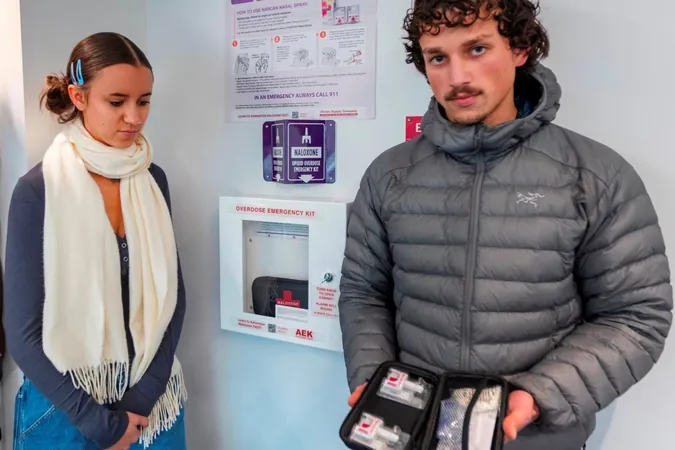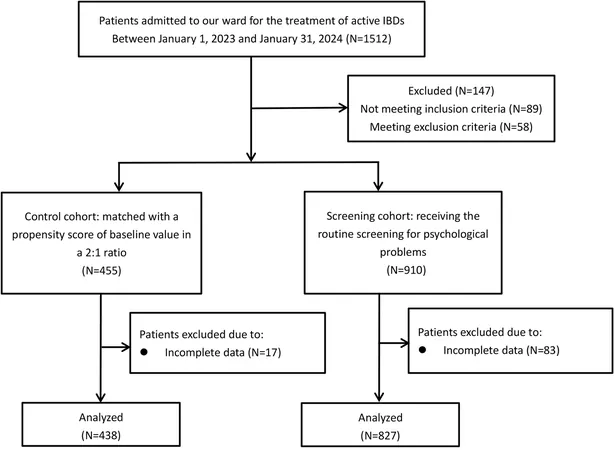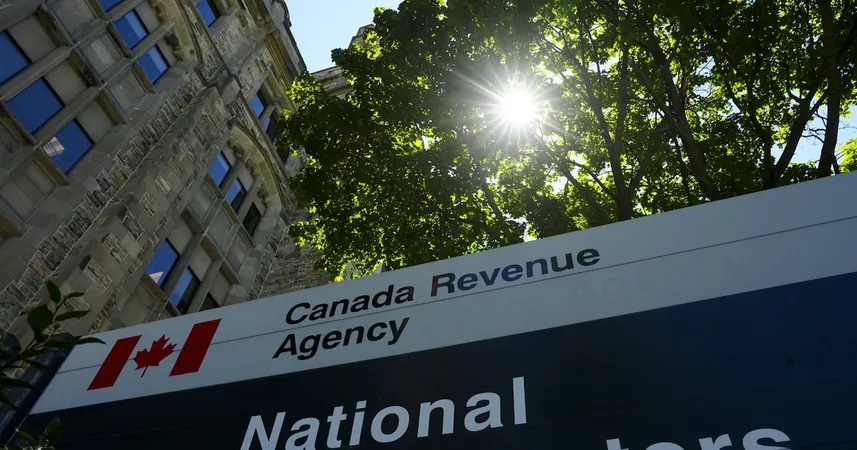
Urgent Need for Change: Fentanyl Crisis Sparks Action at UVic After Tragic Death
2024-12-30
Author: Sophie
Introduction
In January 2023, the heartbreaking fentanyl-related death of University of Victoria (UVic) student Sidney McIntyre-Starko sent shockwaves throughout British Columbia. The 18-year-old's untimely demise brought significant attention to the escalating overdose crisis and highlighted alarming gaps in emergency response on campuses. In the wake of this tragedy, a series of changes have been proposed across educational institutions and health systems. However, advocates stress that these reforms must be diligently pursued to ensure safer environments for students.
Immediate Responses
In an immediate response to McIntyre-Starko's death, UVic implemented naloxone kits in every building’s residence by August. However, a growing number of students believe that merely placing these kits is not sufficient. Fourth-year student Zack Fenniri and others have launched a petition advocating for mandatory naloxone training for all students, asserting, “Having kits available isn’t enough. Students need to be educated on how to effectively use them.”
Support from Parents and Officials
Compounding the urgency of the situation, McIntyre-Starko’s mother, an emergency room physician named Caroline McIntyre, voiced her support for these student-led initiatives, reinforcing that "Everyone should know how to save a life." Tragically, when Sidney collapsed on January 23, no one in the vicinity had access to naloxone, and critical delays in emergency response led to her death from oxygen deprivation.
Government and Institutional Response
In response to public outcry following coverage of the incident in May, BC Premier David Eby announced a coroner’s inquest into her death. Subsequently, the provincial government pledged to procure user-friendly nasal naloxone to replace the injection form commonly provided by pharmacies. Additionally, a requirement for CPR training among high school students has been set to roll out by September 2025, aligning BC with other provinces that have similar mandates.
Acknowledging Shortcomings
Despite these commitments, UVic began acknowledging shortcomings in handling McIntyre-Starko’s case, admitting that “mistakes were made.” The school promised improvements including installing 89 more naloxone stations on campus, staff training, and enhanced student education on harm reduction resources. Furthermore, the province has distributed a total of 1,600 nasal naloxone kits to post-secondary institutions for use during events and field trips.
Raising Awareness Among Students
However, the momentum initiated by Sidney's case must be maintained. In November, students Adrianna Balic and Zack Fenniri engaged with first-year classes and discovered a shocking lack of awareness surrounding naloxone training and its availability. Balic emphasized, “It feels like there’s a lot of blurriness about what resources are available, not just to students, but to community leaders.
Institutional Efforts
A UVic spokesperson remarked that efforts to inform students about naloxone locations and training have been made, citing orientation sessions. Meanwhile, new guidelines have been proposed requiring all BC universities to include naloxone information in their orientation packages.
Family Advocacy
Sidney's parents have initiated the SidneyShouldBeHere.ca campaign, reaching out to post-secondary institutions across Canada to advocate for enhanced harm reduction policies. Notably, some provinces have responded, with New Brunswick asking its institutions to take action on the parents' recommendations and Newfoundland providing naloxone access in elementary schools.
Further Reform and Calls for Action
As these ongoing conversations develop, Sidney's parents insist that further reforms must ensure adequate first aid training and emergency response protocols on campuses. "We must not have a repeat scenario where a campus responder fails to recognize the basic needs of a blue, unconscious teenager," stated Caroline McIntyre emphatically.
Current Challenges
While Ontario leads the way with free access to nasal-spray naloxone, BC remains entrenched in using needle syringes for most distributions. The Health Ministry has launched a pilot program allowing at-risk groups to access nasal naloxone, aiming to cover higher need areas, particularly Indigenous populations heavily affected by the crisis.
Urgent Public Health Crisis
As BC continues to confront its ongoing public health emergency—marked by more than 15,000 overdoses since 2016 with the highest death rate in the country—there is an urgent need for systemic changes. Caroline McIntyre insists, “We continue to lag behind many provinces in providing easy-to-use naloxone. Access to this life-saving resource must be improved across the board.”
Conclusion
The community expects and deserves a comprehensive approach that puts student safety and life-saving interventions at the forefront. The time for action is now.









 Brasil (PT)
Brasil (PT)
 Canada (EN)
Canada (EN)
 Chile (ES)
Chile (ES)
 Česko (CS)
Česko (CS)
 대한민국 (KO)
대한민국 (KO)
 España (ES)
España (ES)
 France (FR)
France (FR)
 Hong Kong (EN)
Hong Kong (EN)
 Italia (IT)
Italia (IT)
 日本 (JA)
日本 (JA)
 Magyarország (HU)
Magyarország (HU)
 Norge (NO)
Norge (NO)
 Polska (PL)
Polska (PL)
 Schweiz (DE)
Schweiz (DE)
 Singapore (EN)
Singapore (EN)
 Sverige (SV)
Sverige (SV)
 Suomi (FI)
Suomi (FI)
 Türkiye (TR)
Türkiye (TR)
 الإمارات العربية المتحدة (AR)
الإمارات العربية المتحدة (AR)